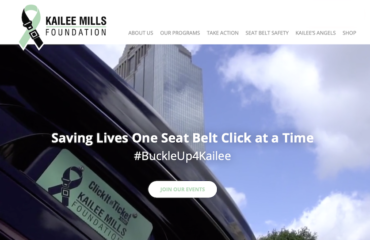“I can’t wait to see you this weekend!” Angelina Holloway sent that text message at 2:11 p.m. on April 18, 2016. At 2:15 p.m., a deputy found her wrecked car. She had veered off of the road and crashed into a tree, dying on impact. It doesn’t take much effort to go on-line and find stories about text messages being sent just before someone dies in a car crash. Sadly, the stories are becoming common. In this case, she didn’t wait to text someone, and that was the end.

Every year in the United States over 3,000 people die and tens of thousands are injured because of distracted driving. Just over 9 percent of all crashes are reported due to distracted driving. It is because of these deadly statistics that April is designated as Distracted Driving Awareness Month.
Distracted Driving
Safe driving requires that our mind be focused on the driving, our hands are on the steering wheel and our eyes are watching the road and checking the mirrors. When one of those activities (brain, hands, or eyes) is not focused on the driving, we are driving distracted. Granted, there are different levels of distraction, but each form brings with it an increase in risk.
Eating food while driving means that your hands are not on the steering wheel, looking at your cell phone has taken your eyes off of the road, talking on the phone (hands free or not) means that your mind is not focused on the driving. Texting while driving incorporates all three forms of distraction: hands not on the steering wheel; eyes not on the road; and, brain not focused on driving. Texting while driving is one of the most common, pervasive forms of distracted driving, and too many drivers are succumbing to this deadly—and often illegal—habit.
Texting While Driving: It Can Wait
It is time to develop a new habit and wait to use your cell phone while driving. AT&T actually developed the campaign to fight texting called it “It Can Wait.” Consider, we go to the movie theater watch a movie, we take a flight to for a new and exciting adventure and we are told to wait, don’t use your cell phone and we are able to do it. Those actives are not putting our lives at risk, and the one time it could cost us our life or serious injury, we don’t wait. Change is hard, for everyone. But we can all change, for our family, our friends and ourselves.

Put Your Phone Away
Below are five suggestions from NHTSA to help start that change:
- Don’t follow the trends. When you get behind the wheel, be an example to your family and friends by putting your phone away. Texting and driving isn’t a “cool” or trendy behavior—it’s deadly and, oftentimes, illegal activity that could kill you, a loved one, a friend, or a stranger.
- In 47 States, Washington, DC, Puerto Rico, Guam, and the U.S. Virgin Islands, texting while driving is an illegal, ticketable offense.
- If your friends text while driving, tell them to stop. If your passengers catch you texting while driving and tell you to put your phone away, put it down.
- No one likes to be called out by a friend for doing something wrong, but it’s even worse to get caught by law enforcement and end up paying a fine.
- Remember, when you get behind the wheel, put your phone away.
Remember, that text can wait while you drive. If you wait till after you drive, then your family or friends won’t have to wait a lifetime to see you.
Get more articles like this
in your inbox
Subscribe to our mailing list and get the latest information and updates to your email inbox.
Thank you for subscribing.
Something went wrong.






